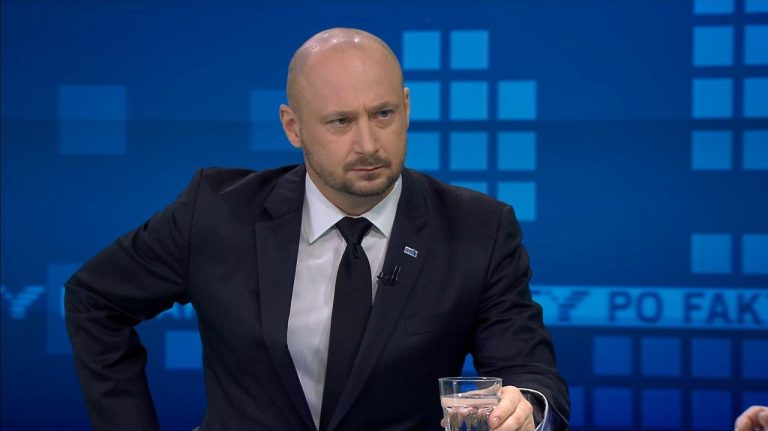– These events show that the Russian Federation has limited opportunities to influence several theaters at the same time, – said Jacek Siviera, head of the National Security Bureau, on TVN24 TV, referring to the situation in Syria. He added that he sees “many possible threats” to the security of the region and the interests of Poland.
On Sunday morning, the Syrian rebels announced the capture of Damascus, the capital of the country, and the overthrow of Bashar al-Assad, who ruled the country for 24 years. This is the last phase of the civil war that has been going on since 2011. Assad was supported by Russia, Iran and Lebanon's Hezbollah, which was backed by Tehran.
Siviera: public opinion must form a correct understanding of the regional implications
The head of the National Security Bureau, Jasek Siviera, said on TVN24's “Facti po Factach” that the incidents were “unprecedented and global”. As he said, it seems to him that “public opinion should build a correct understanding of the regional consequences from the prism of political realism.”
– Here it is necessary to pay attention to two issues. This is the military dimension and this is the political aspect. In both cases, I have the impression that optimism is far from believing that this is a great failure of the Russian Federation, he said.
He assessed that “this form of optimism is protected by the world powers that can fully benefit from the withdrawal of some forces or forces.” – However, from the point of view of regional security and serving the interests of the Republic of Poland, I see many possible threats here, – Sivera noted.
– A threat or more hope, because it turns out that Russia is so weak that it cannot maintain its position in the Middle East? – asked the host of the program Pyotr Krasko.
– When it comes to the positions and possibilities of predicting the power of the Russian Federation, they are really limited. These events clearly show that the Russian Federation has limited opportunities to influence several theaters at the same time. And as a political decision, it refused to intervene and support the Assad regime, he said.
Siviera: it shows that the real interests are in Central Europe
Sivier was asked if it was true that Putin looked at the papers on the table, checked what kind of troops he had (and said – editor): “We can't deal with Syria, come on, we're going to withdraw, but we're going to take these troops move to Ukraine and we will not surrender there?”
In response, he said that “we are dealing with a global game in a completely strategic dimension.” He noted that “for example, three frigates, very advanced ships equipped with hypersonic missiles “Zircon”, left the port of Tartus (in Syria – ed.), where they have been stationed for the past decade, which It was very important for researchers from the point of view of the interests of the Russian Federation.
– They showed their ability there as well. They conducted training firings of hypersonic cruise missiles at targets proposed for the exercise and are now in the Mediterranean Sea, most likely going to other ports, he said.
He showed that “they can end up in the Baltic Sea”. – We made a big change due to the investment in frigates, the Mietsnik program and the development of the Navy. We expect that three missile frigates will be put into service in the coming years until the end of the decade, said the head of the National Security Bureau. He stated that “this is a major modernization effort that we are undertaking.”
– If the Tartus ships go to the Baltic Sea, if they go to St. Petersburg, they will balance and compensate for all modernization efforts in terms of combat capability, which the Republic of Poland is currently undertaking, he noted. He assessed that “this is a serious risk”.
– On the one hand, this is good news. This shortens the front, reduces the theaters of interest of the Russian Federation and shows its limitations. But on the other hand, in this behind-the-scenes diplomatic process that is emerging, it clearly shows that the real interests in Central Europe, the real interests of the Russian Federation, are here, Siviera emphasized.
– I expected that here there is an intention of tension in diplomatic language, which will increase the pressure on the regional theater of Central and Eastern Europe, – he added.
Main photo source: TVN24

